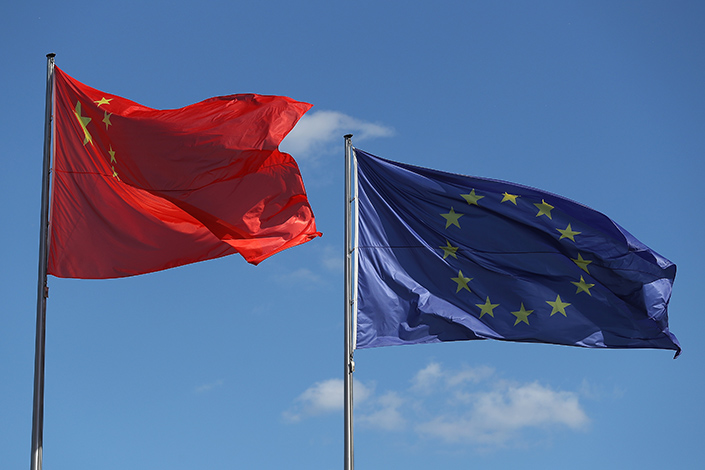With an Eye on Cross-Border Investment, China and EU Craft Joint Standards for Green Projects

China and the EU have formulated a jointly recognized set of standards for defining green projects, a move that aims to help sustainable businesses in the two markets attract more cross-border investment from each other.
The green investment taxonomy, entitled Common Ground Taxonomy — Climate Change Mitigation, was published Thursday by the International Platform on Sustainable Finance at a side event of the 26th U.N. Climate Change Conference of the Parties (COP26). The document is open for public comment until Jan. 4.
It lists 80 economic activities across six industries that have been defined as green and sustainable by both China and the EU. The six industries are agriculture, forestry and fishing; manufacturing; electricity, gas, steam and air conditioning supply; construction; water supply, and sewage, waste management and remediation activities; as well as transportation and storage. The taxonomy also offers criteria for gauging a project’s contribution to mitigating climate change.
“It is expected to support China-EU green finance cooperation and mobilize cross-border climate financing by lowering the green certification cost for cross-border transactions,” the People’s Bank of China (PBOC) said in a statement Thursday. “It could be used as a voluntary reference by market participants when issuing or trading green financial products.”
At the end of 2020, China was the world’s largest issuer of green loans by outstanding value, and it had the second-largest market for green bonds, according to central bank data. However, that was partly due to its loose standards for defining green projects.
Amid the country’s ramped-up efforts to realize its “dual carbon” goals of peaking carbon emissions by 2030 and achieving net zero emissions by 2060, the government pledged to bring its classification standards for green projects more in line with international norms. In April, the PBOC announced that the proceeds from green bonds will no longer be allowed to go to certain fossil-fuel projects.
To reach its net zero target by 2060, China will need to invest more than 100 trillion yuan ($15.6 trillion) into domestic green projects, China International Capital Corp. Ltd. (601995.SH) CEO Huang Zhaohui said Wednesday at a COP26 seminar.
China cannot solely rely on public funding in the domestic market to provide such an immense sum, Huang said. It will also need support from an open and efficient financial system to promote an effective flow of cross-border green capital.
In the future, China can explore bringing its standards for green loans, green equity investment and other green financial products more in line with international standards, Huang said.
Contact reporter Tang Ziyi (ziyitang@caixin.com) and editor Michael Bellart (michaelbellart@caixin.com)
Download our app to receive breaking news alerts and read the news on the go.
Get our weekly free Must-Read newsletter.

- MOST POPULAR






